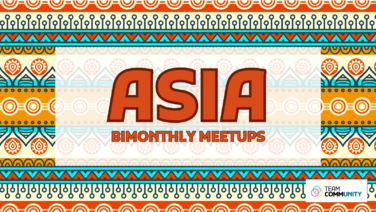January 16 2024, Asia Meetup

The Asia Regional Meetups are bimonthly text-based gatherings that bring together folks from the Asian region to share, connect, seek help, and release stress by celebrating each other. In addition, it is a time for us to find ways to support each other, and help us understand what is happening in our part of the world. If you cannot attend the monthly meetups, we are taking notes of each gathering and linking to them below.
The Asian community is connected during the week in different ways. Either through the Asian channel on the TCU Mattermost or via different events organized on various topics during the year.
Date: Tuesday, January 16
Time: 5:30pm IST/ 6:30pm MMT / 7am EDT / 12pm UTC (What time is it in my city?)
Who: Facilitated by Sapni
Guest: Seerat Khan is the Programs Lead at the Digital Rights Foundation in Pakistan, and has done extensive work on gender and technology over the past 7 years. She mostly works with women human rights defenders and women journalists on key themes like data protection, online safety, gender, privacy and misinformation.
Where: Text-based format in the Regional Asia channel on the TCU Mattermost.
- Don't have an account to the TCU Mattermost? You can request one following the directions here.
Notes: Please put notes here: https://pad.riseup.net/p/asia-meetup
Agenda
Seerat Khan is the Programs Lead at the Digital Rights Foundation in Pakistan, and has done extensive work on gender and technology over the past 7 years. She mostly works with women human rights defenders and women journalists on key themes like data protection, online safety, gender, privacy and misinformation.
Notes
Unique challenges to digital rights in Pakistan within the larger challenges in Asia are access to technology, understanding the right to privacy, women are skill restricted from access, and are subject to social surveillance by society when using the internet and their devices. Draconian legislation like the Prevention of Electronics Crimes Act (PECA) which came out in 2016, there are a lot of restrictions on what you can and cannot say in online spaces because it has implications in offline spaces for many.
In a country like Pakistan women and non-binary genders are repeatedly subjected to surveillance by the state and other actors and any content they do share about bodily autonomy or themselves is deemed as 'immoral', 'obscene' or 'vulgar' in the eyes of the law.
Bridging the Gender Divide:
Awareness raising awareness-raising sessions with young folks to make them understand key digital rights concepts and themes like the right to privacy, consent, non-consensual use of information, Mis/disinformation and tech-facilitated gender-based violence and hate speech.
Gaps exist where there is still lack of awareness on key digital rights issues and the harms that are replicated in our offline lives. It's important to mainstream these conversations but also ensure that everyone should be part of conversations around digital rights since we all use the internet and not limit it to a few.
Ensuring that at-risk communities and vulnerable professions like journalists and human rights defenders are heard and seen is important.
Some digital security concerns for women journalists and human rights defenders in Pakistan:
Women Journalists and human rights defenders are particularly vulnerable in Pakistan because there are very few protections given to them by media houses and organizations and the state is always after them for the work that they do. They are subjected to hate, abuse, online violence and gendered disinformation just for doing their job.images of women journalists lately are photoshopped onto pornographic content and slurs that are very derogatory and sexual in nature are used against them. Another thing that's happening at the moment is the use of AI and generative AI against women journalists and there's been a spike in content being produced that is in the form of non-consensual pornographic images and videos. This is extremely alarming because now that AI and generative AI tools are being introduced regularly, we see that the consequences can be far-reaching and widespread.
AI Regulations to address varying concerns of Generative AI:
The EU's AI Act has also now laid grounds for governments in the Asia Pacific to come up with different regulations however there are still no considerations being made on the grounds of human rights and international human rights frameworks are being ignored with governments not adopting human rights impact assessments and measures when drafting policies. In Pakistan, the upcoming elections may inspire some regulations along with a personal data protection bill, which still needs to be made into law. The law however doesn't always does not ensure data privacy of users from state institutions which is very alarming.
Some of the GEN AI issues are that it may give users less privacy, leading to more state facilitated surveillance. It is already happening in Pakistan sophisticated surveillance technologies are being used to target human rights defenders and journalists (even those who have a limited online presence) and their data is being used against them. We're in some kind of age of data colonialism where tools through AI are collecting our data and manipulating it in a manner that is leading to more draconian policies and legislations.
Resources Shared
- Decolonizing Data Justice https://genderit.org/feminist-talk/decolonising-data-data-justice
- Bodily Autonomy and Censorship Snippets from South Asia https://genderit.org/feminist-talk/bodily-autonomy-and-censorship-snippets-south-asia
- How AI exacerbates online gender-based violence https://ethicalsource.dev/blog/ai-and-gender-based-violence/